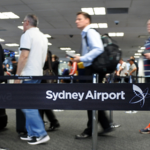ABF and Police Powers to be Further Expanded

As one traveller recently discovered, Australian Border Force (ABF) officers have the power under section 186 of the Customs Act 1901 and its regulations to confiscate the electronic devices of those at the airport for up to 14 days.
If the devices are subject to a seizure, they can be held for even longer.
The Act also provides that the expense of transporting the devices and any subsequent examination is borne by the owner, regardless of the outcome.
And a recent bill introduced by home affairs minister Peter Dutton proposes to give ABF officers even greater powers, including the ability to force individuals under the threat of imprisonment to unlock their devices.
The Assistance and Access Bill seeks to amend the Customs Act to enable ABF officers to request a warrant from a judge, forcing individuals to provide access to their electronic devices in any location.
It also seeks to increase the maximum penalties for refusing to comply with orders from two years to five years for a simple offence, or ten years where a ‘serious crime’ is suspected.
More power to law enforcement
But the expansion of law enforcement powers does not stop there.
A bill was recently introduced into parliament which would give police the power to require individuals to produce their identification at airports without any ‘reasonable suspicion’ of wrongdoing’, to force people to leave the airport when requested and ban them from boarding flights.
Police would be empowered to issue ‘move on’ directions to anyone they think is an ‘imminent security threat’, and ban them from entering airports for 24 hours.
Anyone who refuses could be arrested and face fines of up to $4,200.
Those who are found to have provided misleading information would a maximum penalty of 12 months in prison and anyone who obstructs a Commonwealth official would face up to 2 years.
Justification
As usual, Mr Dutton has justified the latest proposed encroachments on personal liberties on the grounds of national security.
“Police at our airports are highly trained in behavioural analysis and threat assessments. However, they don’t currently have the power to check ID unless they can link behaviour to a specific offence,” he said in a statement.
“The proposed powers are commensurate with aviation security threats and will help our police protect the Australian community.”
The explanatory information accompanying the bill states:
“Without specific intelligence that an offence has been, is being, or will be committed, AFP officers have reported that, under the current framework, they are unable to assess potential threats within airports by directing a person to provide evidence of their identity.”
Opposition
But Greens senator Nick McKim sees, “[n]o justification for this ‘papers please’ policy”, which has been likened to the pre-World War II powers of law enforcement officials in Nazi Germany.
Shadow attorney-general Mark Dreyfus has promised that Labor will carefully review the proposed laws.
“We expect this bill to be thoroughly examined through the parliamentary joint committee on intelligence and security”, he stated.
But with a whole host of laws which remove legal safeguards and protections in favour of state control being passed with bi-partisan support in recent years, many feel the passage of the bill in one form or another is a ‘sure thing’ – as the opposition cowers under the prospect of being labelled ‘soft on security’.








